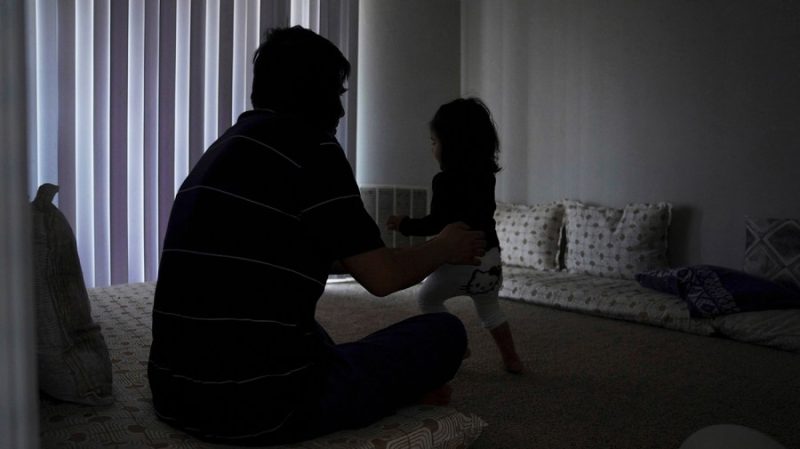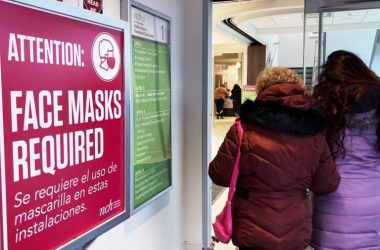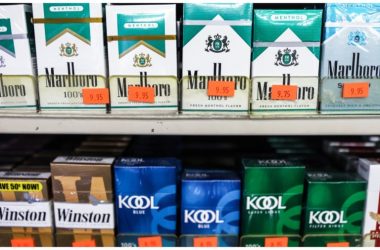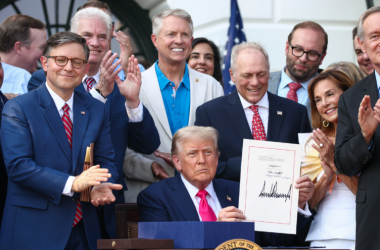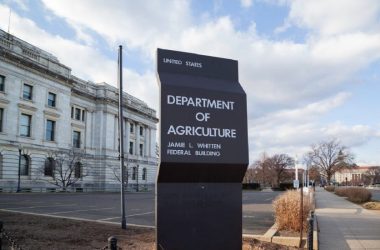The Trump administration is attempting to reverse decades-old policy to exclude a broad group of immigrants from accessing social services and health benefits, a move that is causing widespread fear among immigrant advocates even as it has yet to take effect.
Immigration groups and health experts say it could harm millions by cutting off access to basic health services, including for people who are U.S. citizens and immigrants who have legal permission to be in the country. They have been pressing the administration for more information, but say there have been few details forthcoming.
“That’s the other thing about these notices, they leave so many questions unanswered,” said Tanya Broder, senior counsel on health and economic justice policy at the National Immigration Law Center.
“They don’t tell people how immigration status will be verified, whose immigration status is relevant,” she added. “They say more guidance is forthcoming, but they don’t name the services that are exempt from restrictions, and they leave people confused on what they should do.”
The administration in July announced it was reinterpreting a 1996 federal law that has allowed immigrants access to certain public benefits, part of an effort to further crack down on what the White House says is the abuse of taxpayer services by undocumented immigrants.
The Department of Health and Human Services (HHS) said it was expanding the definition of “federal public benefit” to include a host of new services that would be off-limits to undocumented immigrants – including Head Start, Title X family planning services, and the community health center program.
“For too long, the government has diverted hardworking Americans’ tax dollars to incentivize illegal immigration,” Health and Human Services Secretary Robert F. Kennedy Jr said in a statement announcing the new policy.
The move “restores integrity to federal social programs, enforces the rule of law, and protects vital resources for the American people,” Kennedy said.
The policy was supposed to take effect immediately without any public input.
But after being sued by 20 blue states and the District of Columbia, HHS agreed to pause enforcement nationwide until Sept. 10 while considering public comments, which were due Aug. 13.
The agency said it would determine whether to provide any additional information. Plaintiffs in the case are expecting a judge to issue an order on the lawsuit by September 10th, according to Broder.
Advocates said the administration’s shift fits a pattern.
Undocumented immigrants have long been ineligible for programs like Medicaid, Medicare and the Supplemental Nutrition Assistance Program (SNAP). But the administration and Republicans in Congress are going further.
“These changes, just like many of the attacks that the administration has perpetuated against immigrants and the immigrant community, are really not actually about undocumented immigrants,” said Esther Reyes, a campaign strategist for the Protecting Immigrant Families coalition.
“In reality, they don’t have eligibility for these programs to begin with. So what [the administration is] actually doing is limiting access and restricting eligibility for people who are actually here with authorization and with a lawful status,” Reyes said.
For instance, Reyes said many U.S. citizen children have parents who are undocumented or have other types of immigration status. So even if those children are eligible and entitled to use a program, they may get shut out due to confusion and misunderstanding about the restrictions.
The sweeping change was announced just weeks after the “big beautiful” tax and spending law imposed new restrictions on food aid and health programs for immigrants. Combined with the new restrictions, experts and advocates said the changes will likely have chilling effects on immigrant families, making them reluctant to seek out the care and services they need.
“People are going to … retreat further into the shadows of our society,” said Mitesh Popat, CEO of the Venice Family Clinic, a community health center serving more than 45,000 people in the Los Angeles area.
“This will just further entrench those people as an underclass of people who are afraid to come out, afraid to get needed nutritional assistance, send their children to school and receive health care services,” Popat said.
The Clinton administration’s 1996 welfare reform restricted services like Medicare, Medicaid, the Children’s Health Insurance Program and more to a category of “qualified immigrants.”
Now, the Trump administration wants to add 13 more programs to the list.
A qualified immigrant is not necessarily undocumented. The category includes people in the country with a nonimmigrant visa, people who have applied for asylum, people with Temporary Protected Status, those who have Deferred Action for Childhood Arrivals (DACA) and others, according to health research nonprofit KFF.
“These guys have sought to completely confuse people on who is an illegal alien,” said Sara Rosenbaum, a professor of health law policy at George Washington University.
The change most concerning for advocates involves federal funding for community health centers, a program that funds more than 15,000 clinics.
Community health centers are often the providers of last resort. A 2023 KFF survey found three out of 10 immigrant adults said a CHC is their usual source of care. That portion rose to about four in 10 among undocumented immigrants and immigrants with limited English.
Health centers can’t turn anyone away, but if they are restricted from serving undocumented patients, they may not be reimbursed for care.
Under the 1996 law, nonprofits are not required to report on immigration status of the patients they serve. The new policy seemingly keeps that exemption, but HHS wasn’t clear.
Advocacy groups fear the administration is attempting to turn health centers and other places where people receive services into immigration checkpoints.
“Our purpose for existing, we’re not supposed to be arbiters in the middle of deciding who can get care, who can’t get care,” said Popat.
It’s also unclear how the administration will enforce the new policy.
“We are service providers … we aren’t law enforcement. We aren’t here to adjudicate whether someone’s ID looks legitimate or not, or someone’s papers look legitimate or not,” Popat said.
This conflict between the federal government’s policy change and the statutory requirement for CHCs will likely cause confusion among providers and immigrant patients alike.
“There’s this very complicated patchwork of different regulations right now on the federal, state and local level, in terms of who is or isn’t required to check immigration status. And that’s just going to put a huge burden on these community health centers,” said Sweta Haldar a senior policy analyst at the Democratic-aligned Families USA.
Cutting off access to affordable community health center care will likely send people to emergency departments, a costly visit for patients that could also exacerbate overcrowding and long wait times/
“Immigrants and citizens work together in families and communities, and that excluding anybody from health care, compromises the health and well-being of all of us,” Broder said.

